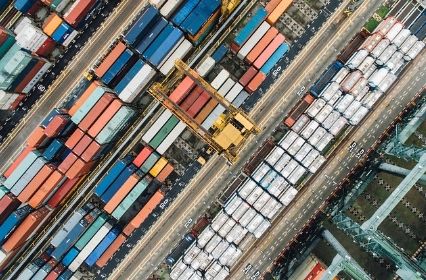What is a Free Port and How Does It Influence Global Trade?
A free port, also known as a free trade zone, is a designated area within a country where goods can be imported, handled, manufactured, or reconfigured, and re-exported without the intervention of the customs authorities. Only when the goods move to consumers within the country in which the free port is located do they become subject to the prevailing customs duties. This article explores the concept of free ports, their benefits, and their role in facilitating international trade and economic development.

Understanding Free Ports
Free ports are secure areas legally outside of a country's customs territory, despite being geographically within its borders. They offer favorable conditions, such as exemptions from certain taxes and tariffs, to encourage businesses to engage in trade, storage, and manufacturing activities.
Key Features of Free Ports
1. Customs Duty Exemption: Goods can be imported into and stored in free ports without paying customs duties until they enter the domestic market.
2. Tax Benefits: Often, free ports provide additional tax incentives, including reduced rates on corporate tax or exemptions from certain local taxes.
3. Streamlined Regulations: Regulatory procedures are typically simplified to facilitate easier and faster handling of cargo, encouraging more businesses to utilize these zones.
4. Enhanced Logistics and Infrastructure: Free ports are usually equipped with advanced logistics and infrastructure to support extensive warehousing, shipping, and manufacturing operations.
Benefits of Free Ports
• Trade Facilitation: They streamline the process of importing and exporting goods, reducing waiting times and lowering costs associated with customs compliance.
• Economic Development: By attracting businesses with fiscal incentives, free ports can drive economic growth and create employment in regions where they are located.
• Global Supply Chain Integration: Companies operating in free ports can more easily become part of global supply chains, benefiting from efficiencies in manufacturing and distribution.
• Encouragement of Investment: The favorable regulatory and tax environment in free ports can attract foreign and domestic investment, boosting the local economy.
Challenges and Considerations
• Risk of Illicit Activities: The reduced oversight and regulatory requirements can make free ports vulnerable to illegal activities such as smuggling or tax evasion.
• Economic Displacement: While free ports can generate local employment, they can also lead to economic displacement if businesses move operations from taxed areas to tax-exempt areas.
• Customs Control and Security: Managing security and customs controls in a way that balances facilitation of trade with prevention of illegal activities can be challenging.
Examples of Free Ports
• Singapore Freeport: Known for its high-security, state-of-the-art storage facilities for fine art, precious gems, and antiques.
• Geneva Free Port: Primarily used for the storage of art, wine, precious metals, and other valuable items.
• Jebel Ali Free Zone (JAFZA) in Dubai: One of the world's largest free zones, offering a wide range of facilities and infrastructure for trading, manufacturing, and logistics companies.
Strategies for Utilizing Free Ports Effectively
• Compliance and Due Diligence: Businesses must ensure they understand and comply with all local regulations within the free port to avoid legal issues.
• Leverage Logistic Efficiencies: Utilize the advanced logistics and transportation facilities available within free ports to optimize supply chain operations.
• Diversify Operations: Consider diversifying activities to include manufacturing and re-exportation, not just storage, to maximize the benefits of operating in a free port.
Conclusion
Free ports play a significant role in global trade by offering economic incentives for businesses to engage in international shipping, manufacturing, and warehousing activities. While they provide substantial economic benefits, it is crucial for both governments and businesses to address potential risks and challenges effectively. As global trade continues to evolve, the strategic use of free ports can significantly influence economic landscapes and international trade flows.
Related articles

 WeChat of CBiBank
WeChat of CBiBank